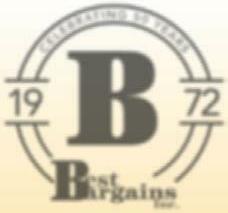
3 minute read
Community briefs Illinois’ COVID-19 disaster proclamation to end in May
Annual spaghetti dinner returns February 23
The Nippersink Middle School Music Department will be holding their annual spaghetti dinner on Febrary 23 from 5-7 p.m.
Advertisement
Adult meal cost is $10 in advance or $12 at the door, children 5th grade to 5 years are $5 and under 5 years is free. Carry out is available for $1.00 extra. Raffle tickets will be sold for $1 each or 6 for $5. Entertainment will be provided by the NMS choir and band.
The Nippersink Middle School is located at 10006 Main Street in Richmond.
Volunteers sought for Volo Bog State Natural Area
Volo Bog State Natural Area is seeking volunteers for docent positions. The docents enjoy interacting with people, have a passion for nature and the environment, spend time enjoying the site and are motivated learners.
Docents greet and assist visitors, answer questions, and offer information about seasonal natural occurrences at the sites. They invite guests to share their experiences and tell of ways to be more involved in enjoying and supporting the parks. Volo Bog SNA docents also help run the Friends of Volo Bog Tamarack Shop.
All new docents receive required readings and mentoring from staff, then shadow experienced docents for a minimum of three sessions before being able to sign up solo.
The two options and training schedule are as follows: Monthly weekend docent – volunteer one weekend day per month for a minimum of one year. Training Saturdays are Feb. 18 and March 4 from 9:30 a.m. to 3:00 p.m. Weekly weekday docents/interpretive office support –volunteer one day per week (Wednesday or Thursday) for a minimum of one year. Weekday docents are comfortable with data entry, copying, filing and other light office tasks. Training Thursdays are March 2 and 9 from 9:30 a.m. to 3:00 p.m.
All trainings are two days plus mentoring. To apply contact Stacy Iwanicki, Natural resources Coordinator, at 815-344-1294 or dnr.vologog@illinois.gov
State emergency orders will end in tandem with national public health emergency
By Hannah Meisel CAPITOL NEWS ILLINOIS
Exactly 38 months after the World Health Organization declared COVID-19 a global pandemic, Illinois will no longer be under a disaster proclamation as of May 11, Gov. JB Pritzker announced Tuesday.
That’s the same day President Joe Biden will end the national public health emergency, which just passed the three-year mark last week.
The White House announced the May 11 end date on Jan. 30.
Pritzker had declared a public health emergency two days before the WHO’s pandemic determination and has renewed his disaster proclamation every 30 days since then.
The repeated proclamations gave the governor authority for COVID-related actions such as closing schools, issuing stay-at-home orders and mandating masks and vaccines. But they were a source of consternation for Pritzker’s political opponents. The governor had slowly rolled back his COVID-19 mandates over the past year, including an action in October when he reversed the requirement for vaccines, testing and masks in health care settings.
But Illinois is still one of seven states with some sort of COVID-related emergency proclamation on its books.
These disaster declarations have allowed those states— including Republican-run Texas—to continue benefiting from COVID-era bumps in federal reimbursements for programs like Medicaid, additional benefits for those on food stamps and the ability to quickly deploy emergency workers to respond to areas in need, like hospitals with severely short staffing.
“Our state’s disaster proc- lamation and executive orders enabled us to use every resource at our disposal from building up testing capacity and expanding our health care workforce to supporting our vaccine rollout and mutual aid efforts,” Pritzker said in a statement.
Pritzker said 1.4 million children in Illinois received nutrition support under the additional Supplemental Nutrition Assistance Program benefits. He also pointed to the expansion of telehealth during the pandemic under his disaster proclamation, which has largely been adapted into state law after it proved popular with doctors and patients alike.
“Let me be clear: COVID-19 has not disappeared,” Pritzker said in the statement. “It is still a real and present danger to people with compromised immune system—and I urge all Illinoisans to get vaccinated or get their booster shots if they have not done so already.”
Opponents to Pritzker’s repeated issuance of disaster proclamations insisted the governor was limited to the 30 days laid out in state law, but legal challenges to that effect ultimately failed after months of litigation.
The governor’s disaster proclamation also allowed for the activation of the State Emergency Operations Center, which brokered cooperation between the leaders of different state agencies in response to COVID-19.
In a message to Congress on Jan. 30, Biden wrote that waiting until May to end the national public health emergency will avert “wide-ranging chaos and uncertainty throughout the health care system” than if it faced the “abrupt end” sought by the Republican-controlled House.















